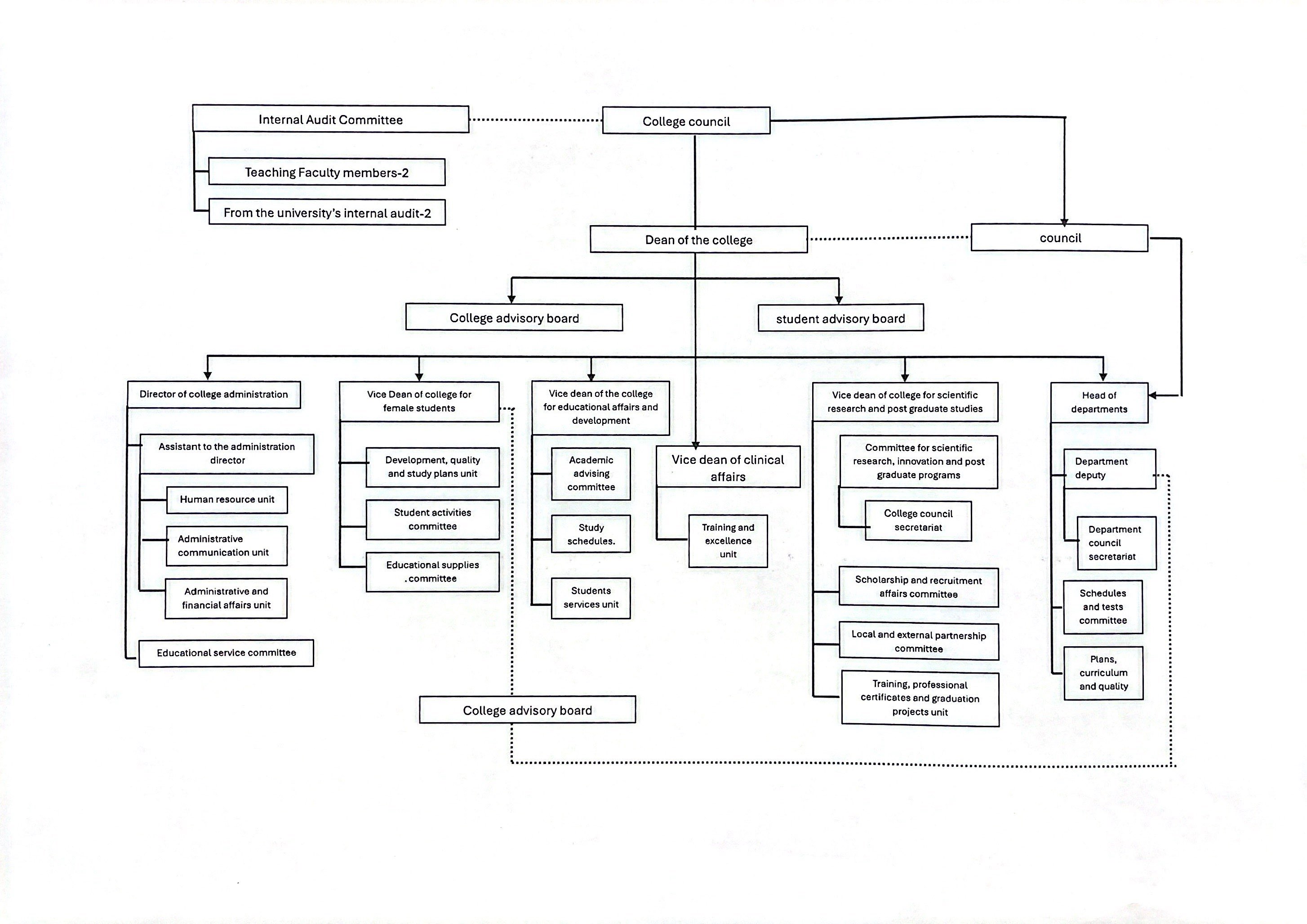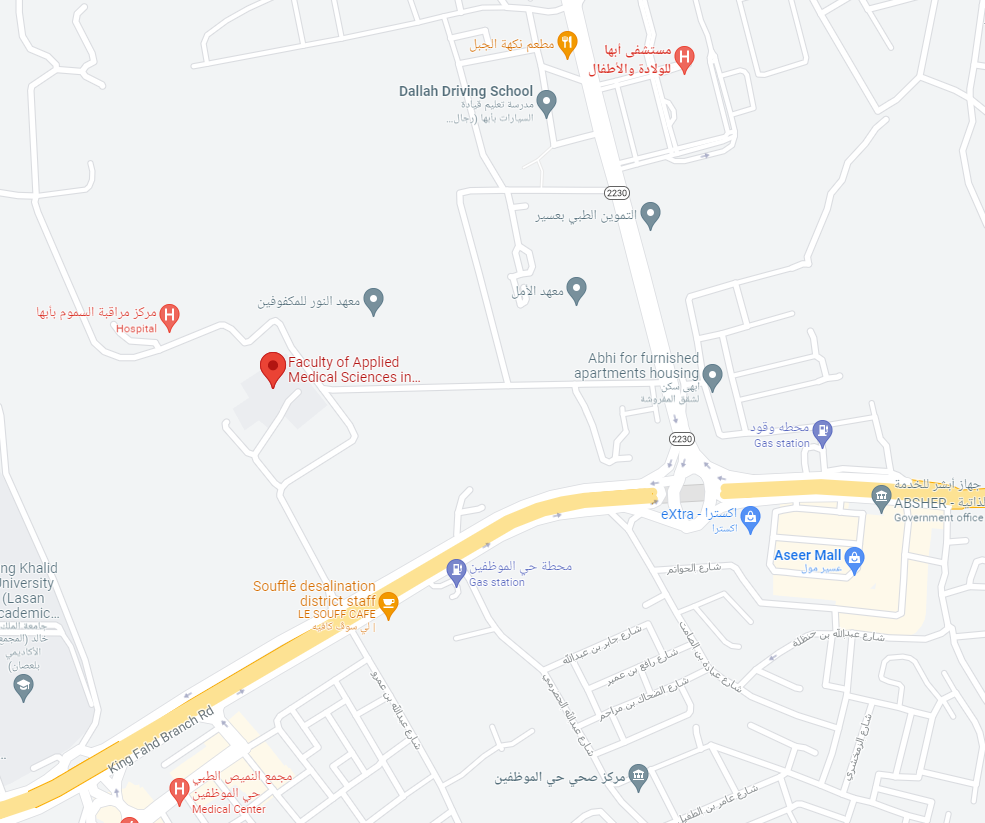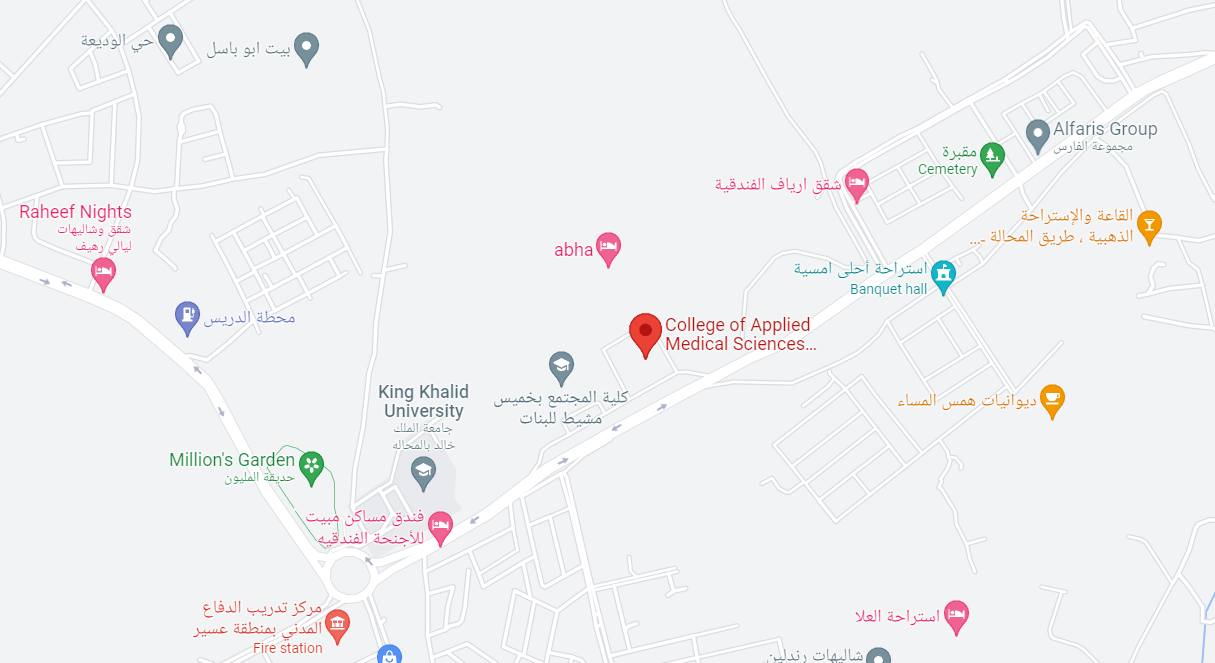The College of Applied Medical Sciences, located in Khamis Mushait, was formerly known as the College of Health Sciences, which was initially in Abha. This latter institution, affiliated with the Ministry of Health, primarily offered diploma programs to prepare students for careers in healthcare. In the academic year 1429-1430 AH, the College of Health Sciences was integrated into the framework of King Khalid University, signifying a shift in its organizational structure and academic offerings. Following this transition, the Higher Education Council approved a significant restructuring of health-related colleges. This decision was formally documented under reference number 5088 on July 8, 1432 AH. As a result of this restructuring, the College of Health Sciences was renamed to reflect its expanded scope and mission better, coinciding with enhancements to its academic programs that enabled the institution to begin awarding bachelor's and Master's degrees. This change marked a pivotal evolution in the college's role within the higher education landscape, underscoring its commitment to providing comprehensive education and training in applied medical sciences
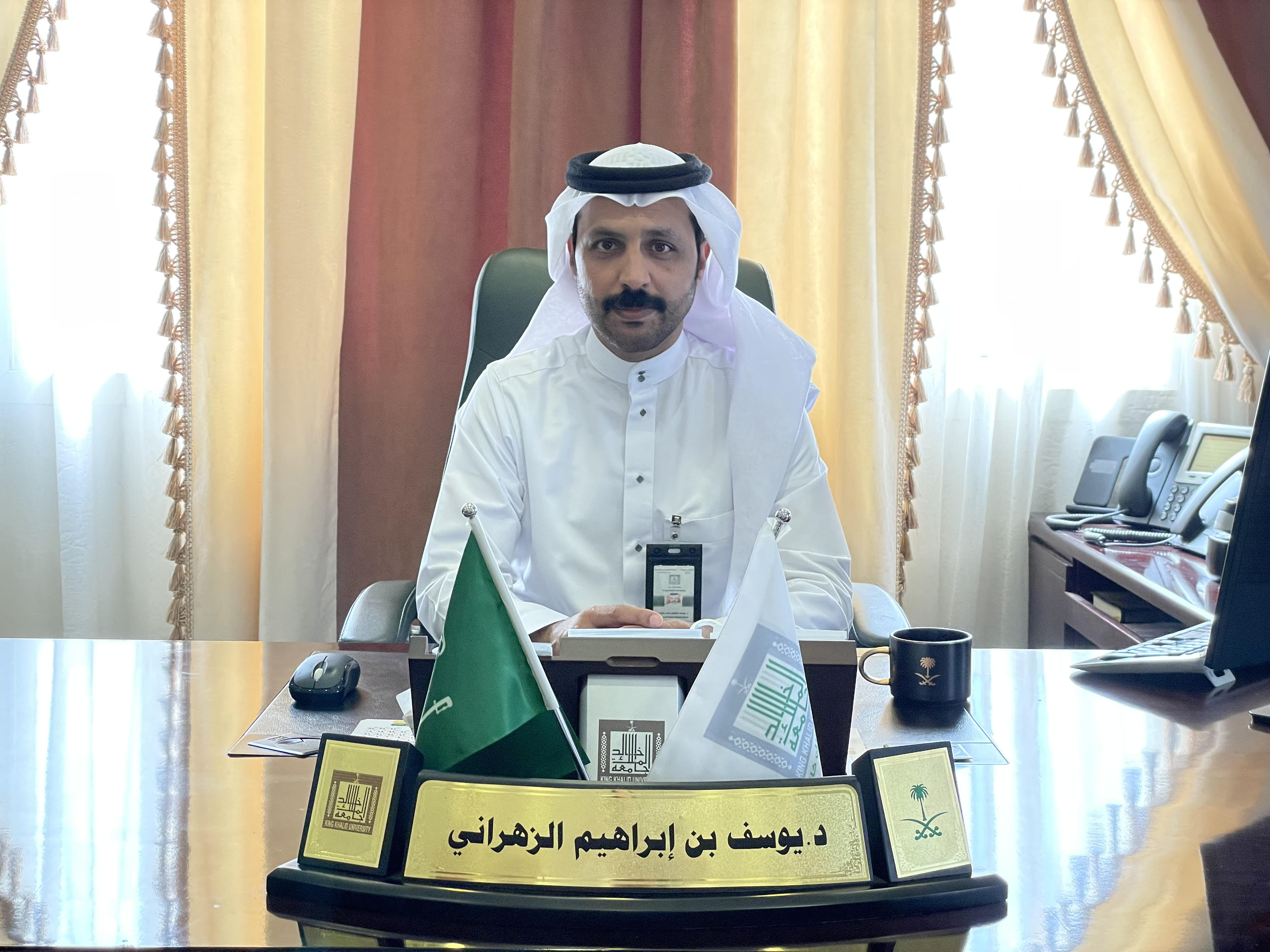
Since its establishment, education has consistently been a paramount priority in the Kingdom of Saudi Arabia. Under the visionary leadership of King Salman bin Abdulaziz, may God protect him, both the education and higher education sectors are witnessing unprecedented progress, often referred to as a golden age. This period is characterized by a remarkable increase in the number of universities and colleges, with educational institutions now positioned in various regions and governorates throughout the Kingdom. King Khalid University, located in the Asir region, has been at the forefront of this educational expansion. The university has made significant financial investments aimed at enhancing its infrastructure and academic offerings, subsequently increasing the number and diversity of its colleges to cater to all governorates within the region. This commitment is driven by the need to meet the Kingdom's growing demand for skilled professionals across multiple sectors. Among the numerous academic programs offered, the College of Applied Medical Sciences in Khamis Mushait stands out as an institution in the region. This college has strategically aligned its mission with the university's broader objectives, which focus on supporting the Kingdom's vision for sustainable development. By focusing on student-centered initiatives, the college is committed to equipping graduates with the skills necessary to excel in the healthcare field. To effectively achieve these ambitious goals, King Khalid University has made significant advancements in its infrastructure and educational services. It has established collaborative partnerships with various medical service centers located both within the Asir region and beyond, fostering a network that enhances practical training and research opportunities for students.
Furthermore, proactive measures are being taken to form regional and international collaborations, as well as binding agreements that will enrich the academic experience. The university also places a strong emphasis on scientific research and community service, actively addressing pressing health issues that affect both the local population and the Kingdom as a whole. By integrating research with community outreach, King Khalid University aims to make valuable contributions to the overall health and well-being of society, thereby reinforcing its role as a leading educational institution in the Kingdom.
- The applicant must be of Saudi nationality or have a Saudi mother.
- The applicant must have a secondary school certificate or its equivalent from inside or outside the Kingdom (with its equivalent from the Ministry of Education).
- To be accepted into health specialties, the applicant must have recently graduated from high school (within the current year).
- The applicant must not have been expelled from King Khalid University or any other university for academic or disciplinary reasons, or have had their registration closed, unless a period of three years has passed since the application for admission to the university was made.
- The applicant must not have withdrawn from King Khalid University or any other university within the past two years before applying for admission to the university.
- The applicant must be medically fit for the specialty in which they are accepted. The Deanship of Admission and Registration may change their acceptance to a specialty that is compatible with their health condition or cancel their acceptance.
- The applicant must pass all tests.
- The application must be submitted electronically within the announced period and in accordance with the system determined by the Deanship of Admission and Registration or the Ministry of Education (the unified platform for admission).
- Manual applications not accepted.
- The applicant must not be a student registered at King Khalid University or any other university; otherwise, the student's admission will be canceled.
- The applicant must obtain official approval from their employer to study if they are an employee.
- The university has the right to cancel admission to programs that do not reach the minimum number of students.
- Priority for admission will be given to graduates of the same year of admission.
| Name | Position | Phone |
| Sultan Nasser Assiri | Administrator | 0172417671 |
| Zead Abdullah Alqahtani | Administrator Assistant | 0172417085 |
| Fahad Ali Alqahtani | Director of the Dean's Office | 0172417115 |
| Saad Awadh Alqhatani | Secretary of the Vice Dean for Higher Studies | 0172417112 |
| Abdullah Mohd Assiri | Administrative Comunication | 0172417461 |
| Hassan Mohammed | Inventory | 0172417665 |
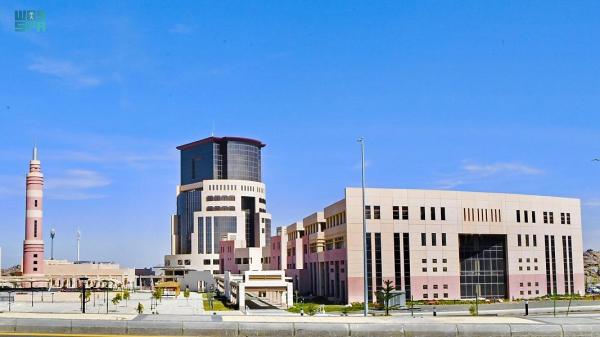
The advancement of nations and the welfare of their populations are intricately linked to the efficiency and growth of human resources. In this context, higher education serves as a crucial mechanism for equipping human capital, signifying a strategic investment vital for the development of each country. Through well-structured higher education programs, nations can effectively address the staffing and specialized labor requirements essential for a thriving labor market and overall national progress. In recent years, the Kingdom of Saudi Arabia has experienced a remarkable surge in interest in higher education, significantly bolstered by substantial financial backing from the government. This initiative is exemplified by the establishment of numerous universities aimed at increasing enrollment capacity and accommodating graduates of public education. Alongside these expansions, there has been a strong emphasis on enhancing the quality of educational outcomes and the institutions delivering them. The government has initiated the formation of the National Commission for Academic Accreditation and Evaluation, alongside the strategic development of the "Afaq Project," which outlines a comprehensive future blueprint for university education in the Kingdom. In harmony with these governmental efforts, universities across the nation have been actively engaged in refining their strategic plans to ensure they align with the standards set by the National Commission for Academic Accreditation and the Afaq Project. King Khalid University stands out among these institutions, having developed a robust strategic plan in collaboration with the Stanford International Research Institute (SRI). This partnership facilitated a thorough analysis of the university's current status, which informed the creation and evolution of the strategic plan. This initiative was driven by the accumulation of relevant data and a clear articulation of the strategic role that King Khalid University aspires to fulfill. The university is committed to supporting higher education through the development of strategic plans tailored to various work units, ensuring alignment with its overarching institutional objectives. Consequently, the vision, mission, and goals of each work unit have been meticulously crafted to correspond with the university's broader strategic plan.
One significant outcome of this comprehensive approach is the "Strategic Plan of the College of Applied Medical Sciences, Khamis Mushait." This plan delineates the general strategic features, beginning with the formulation of the college's vision and mission statements. From these foundations, a set of interrelated and integrated strategic goals has been established, grounded in the implementation of several strategic initiatives. These initiatives incorporate performance indicators and measurable outcomes, designed to provide ongoing insights into the strategy's execution and ensure its successful realization within predetermined timelines. This process significantly contributes to fulfilling the college's aspirations and achieving its future objectives, thereby playing a pivotal role in advancing higher education within the Kingdom.
Strategic Goals:
- Improving the quality of health education.
- Provide a distinct academic environment.
- Establish an effective community partnership.
- Leading a creative scientific environment in the field of applied medical sciences.
- The development of postgraduate programs in the field of applied medical sciences.
- Improving institutional quality through the optimal use of available resources.
In conclusion, the work team looks forward to developing the college through this effort and being the next pillar for the future map.
- Consultative Committees
- Internal Audit Committee
- Study and Examinations Committee
- Plans, Curricula, and Quality Committee
- Scientific Research, Innovation, and Post-Graduate Programs Committee
- Scholarship and Recruitment Affairs Committee
- Local and External Partnership Committee
- Student Advising Committee
- Student Activities Committee
- Education Supplies Committee
- Education Service Committee
